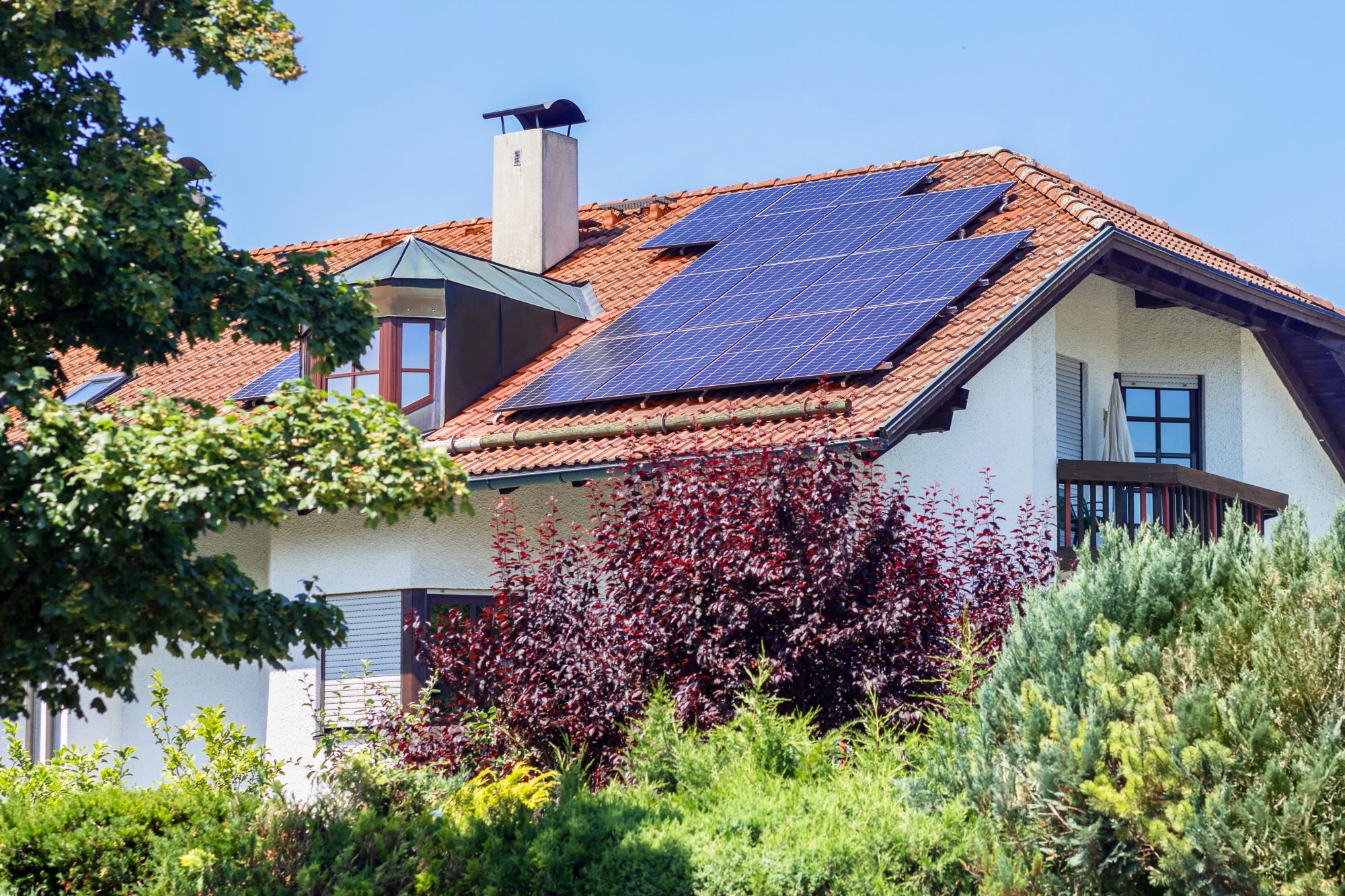FAQs
FAQs
Frequently asked questions
Solar panels offer numerous benefits, including:
- Reduced electricity bills: Solar panels generate free electricity by harnessing sunlight, helping you save on monthly utility bills.
- Environmental impact: Solar energy is a clean, renewable energy source that reduces your carbon footprint.
- Increased home value: Homes with solar panels often have a higher resale value.
- Energy independence: Solar panels can reduce your reliance on the grid, especially when paired with a battery backup system.
Solar panels capture sunlight and convert it into direct current (DC) electricity. This electricity is then passed through an inverter, which converts it into alternating current (AC) electricity that can be used to power your home or business. Any excess energy generated can be stored in a battery or sent back to the grid.
Solar shingles are integrated directly into the roof, serving both as a roofing material and an energy-generating solar panel. Traditional solar panels are mounted on top of an existing roof. Solar shingles provide a more streamlined, aesthetic look, while traditional panels may be more cost-effective for larger systems.
It depends on the condition of your current roof. If your roof is nearing the end of its lifespan, we recommend replacing it before installing solar panels. This ensures that you won’t have to remove and reinstall the panels if a roof replacement becomes necessary later. Our team can assess your roof to determine if it’s in good condition for solar installation.
Solar panels can be installed on most roof types, including asphalt shingles, metal, tile, and flat roofs. If your roof is not suitable for solar panels due to shading or structure, we offer ground-mounted solar systems as an alternative.
Most solar panels come with a lifespan of 25 to 30 years and typically include a warranty that guarantees a certain level of performance over that period. With proper maintenance, solar panels can continue generating electricity even beyond their warranty period.
Solar panels require minimal maintenance. We recommend an annual inspection and occasional cleaning to ensure they are free of dust, dirt, or debris that may reduce efficiency. We offer solar panel cleaning and maintenance services to keep your system running at optimal performance.
If your solar panels generate more energy than you consume, the excess electricity can be sent back to the grid in a process called net metering. In many cases, you will receive credits on your electricity bill for the surplus energy, which can be used to offset future utility costs.
Yes! Solar panels work in cloudy or rainy conditions, although their efficiency may be reduced compared to sunny days. Florida, where we are located, benefits from abundant sunshine, but even in less sunny climates, solar panels can still generate a significant amount of electricity.
- Grid-tied systems: These are connected to the local electricity grid, allowing you to draw power from the grid when your solar system isn’t generating enough energy (e.g., at night) and send excess power back to the grid for credits.
- Off-grid systems: These are completely independent of the local grid and require a battery storage system to provide power during periods when your solar system isn’t producing enough electricity.
Standard grid-tied solar systems do not function during a power outage for safety reasons unless they are paired with a battery backup system. A solar battery allows you to store excess energy generated during the day and use it to power your home during an outage.
The cost of solar panel installation varies depending on factors like the size of the system, roof type, and energy needs. We provide free consultations to assess your property and offer a custom quote based on your specific requirements. Keep in mind that federal and state tax incentives can significantly reduce the cost of your solar installation.
HAVE A QUESTION?
If you have any questions that are not answered here, please feel free to reach out!
Yes, there are several federal, state, and local incentives available to reduce the cost of solar installation. The Federal Solar Tax Credit (ITC) allows homeowners to deduct a portion of the cost of installing solar panels from their federal taxes. State and local rebates may also be available to help reduce the initial investment.
The timeline for installation varies depending on the size and complexity of the system, but most residential solar panel installations take between 1 to 3 days. After the installation, there is typically a brief waiting period for inspections and utility company approval before the system is turned on.
Yes, solar panel installations typically require permits from local authorities to ensure the system meets building codes and safety standards. At One-Up Solar Contractor Inc., we handle all the permitting and inspection processes on your behalf, making the installation process smooth and hassle-free.

Our Services
We Are Building A Sustainable Future
Solar System Maintenance
We believe in providing full support, even after installation. We offer ongoing maintenance.
Comprehensive Solar Services
Our team has the knowledge and expertise to deliver cutting-edge solar solutions.
Generator Sales
We also provide reliable generators to ensure you always have power, even during outages.
Still Have Questions?
Get a Quote
If you have any questions about solar panel installation, maintenance, or our products, please don’t hesitate to reach out. Fill out our contact form, and a member of our team will be happy to assist you! We’re here to guide you through every step of your solar journey.